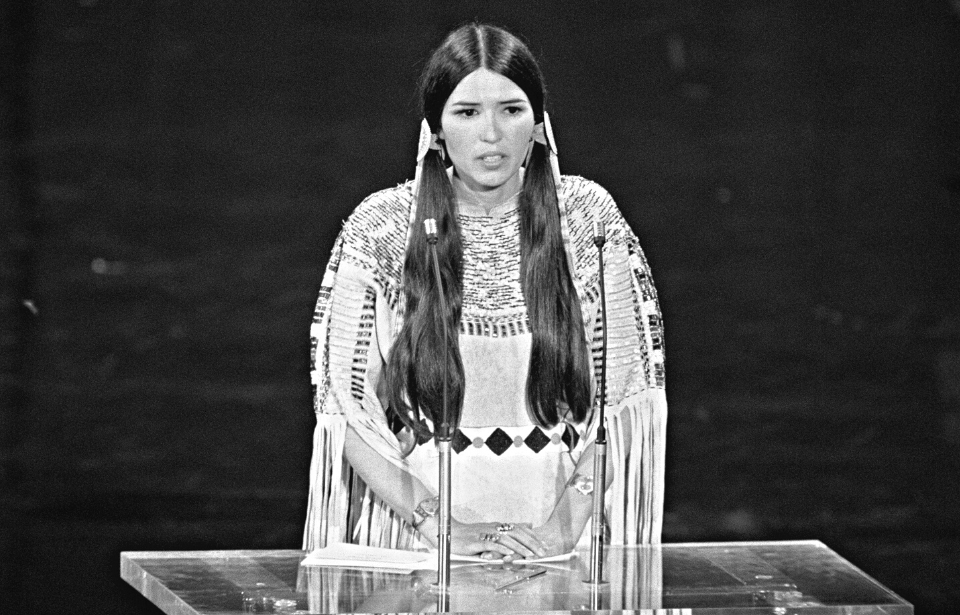On March 27, 1973, history was made at the Academy Awards. A Native American woman stood on the Oscars stage, facing racial slurs and gestures. She was only 26 years old, and the traumatic event would mar her acting career for good. At the time, her appearance on stage sparked a lot of controversies, but despite the implications the event had on her and her career, she “knew [she] had done the right thing.” Fifty years later, the Academy issued her a formal apology for her experience that day.
Marlon Brando won Best Actor

Following his iconic performance as Vito Corleone in the internationally famous 1972 Francis Ford Coppola film, The Godfather, Marlon Brando earned himself a nomination for Best Actor at the 45th Academy Awards. When the time came to announce the winner, Brando’s name came as no surprise.
What did come as a surprise was the individual who went up on stage to accept the award. A Native American woman named Sacheen Littlefeather, wearing a buckskin dress, walked on stage instead of Brando. Only she was not up there to accept the award – she was there to refuse the honor on the actor’s behalf. Brando was boycotting the ceremony in protest of Hollywood’s treatment of Native Americans.
Sacheen Littlefeather refused the award for Brando

In the case that Brando won Best Actor, he’d told Littlefeather not to touch the statue and also prepared for her an eight-page speech explaining his refusal of the award. However, before she went on stage, producers warned her that if her speech went beyond 60 seconds, they would have her arrested. As such, she was forced to improvise and paraphrase the speech.
“[Brando] very regretfully cannot accept this very generous award, and the reasons for this being are the treatment of American Indians today but the film industry – excuse me – and on television in movie reruns, and also with recent happenings at Wounded Knee,” she said while on stage. During the speech, Littlefeather faced booing and racial gestures.
Reflecting on the event in 2022, she told the official Academy blog, “I focused in on the mouths and the jaws that were dropping open in the audience, and there were quite a few. But it was like looking into a sea of Clorox, you know, there were very few people of color in the audience.”
Not only did she face verbal abuse during the speech. Littlefeather explained how John Wayne, the famous Western film actor who once said “… Indians were selfishly trying to keep [the US] for themselves,” had to be restrained by security to prevent him from attacking her on stage.
When she’d finished refusing the award and walked off stage, she read the eight-page speech Brando had written for her in full to reporters backstage.
Littlefeather’s acting career was ruined
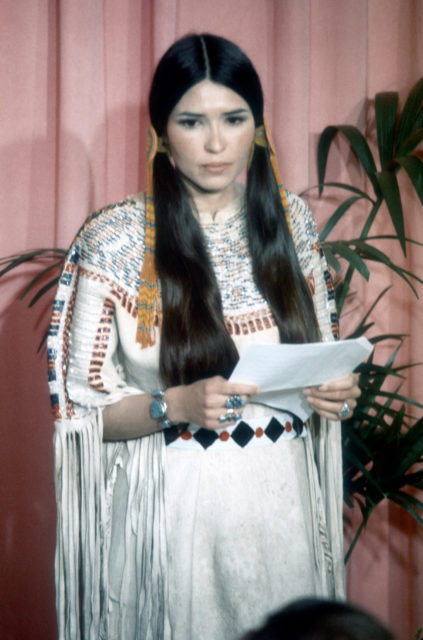
Littlefeather faced a lot of condemnation for her participation in Brando’s refusal of the Oscar, and following the award ceremony, she struggled to get work as an actress. She was essentially blacklisted from Hollywood. The federal government even threatened to shut down any production she was involved in that would air nationally.
Instead of pursuing acting, Littlefeather instead focused her efforts on activism and founded performing arts organizations for Native people. For all of the condemnation she faced, she also received praise and support from people like civil rights activists Cesar Chavez and Coretta Scott King, the widow of Martin Luther King Jr.
The Academy issued a formal apology to Littlefeather
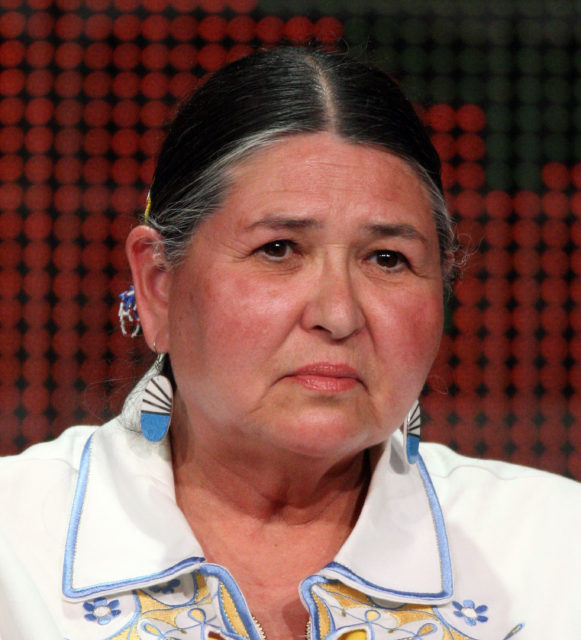
Nearly a half-century later at 75 years old, Littlefeather finally received a formal apology from the Academy. Former Academy president David Rubin wrote the letter of apology on June 18, 2022, which read “The abuse you endured because of this statement is unwarranted and unjustified. The emotional burden you have lived through and the cost to your own career in our industry are irreparable. For too long the courage you showed has been unacknowledged. For this, we offer both our deepest apologies and our sincerest admiration.”
The apology was long overdue, and Littlefeather cried for several minutes when it was read aloud to her. “Regarding the Academy’s apology to me, we Indians are very patient people – it’s only been 50 years! We need to keep our sense of humor about this at all times. It’s our method of survival. This is a dream come true. It is profoundly heartening to see how much has changed since I did not accept the Academy Award 50 years ago. I am so proud of each and every person who will appear on stage,” she said.
‘I did not do this totally for Marlon’
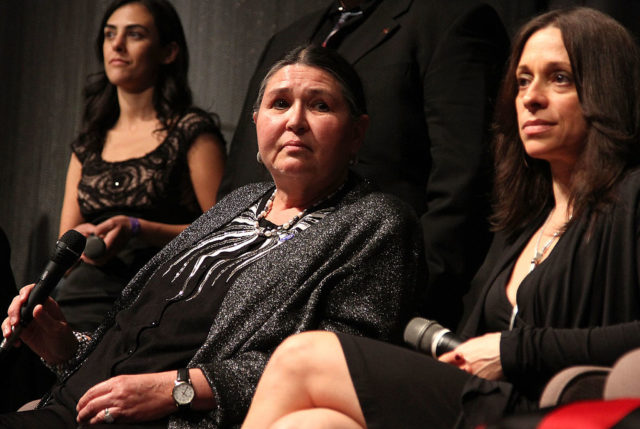
Sacheen Littlefeather sat down with Variety to reflect on the 1973 Oscars ceremony. “I [promised] Marlon Brando that I would not touch that Oscar,” she said “But, as I walked off that stage, I did in the ways of courage, honor grace, dignity and truthfulness. I did so in the ways of my ancestors and the ways of Indigenous women.”
She also clarified that despite her friendship with Brando, which was based on their mutual interest in Native American Indigenous issues, her actions were not solely for his benefit. “I did not do this totally for Marlon. I did not do this on my behalf. I did this for all Native people everywhere who suffered from racial prejudice and discrimination.”
The Academy Museum of Motion Pictures hosted a special event in Littlefeather’s honor
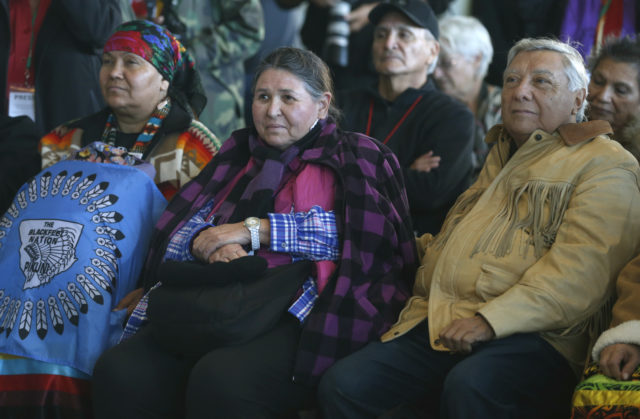
Along with the apology was an invitation for Littlefeather to join the Academy Museum of Motion Pictures as the guest of honor at “an evening of healing and Indigenous celebration” on September 17, 2022. The event hosted several Native artists, including Bird Runningwater, co-chair of the Academy’s Indigenous Alliance, and Virginia Carmelo, a descendent of the Tongva people who will lead a land acknowledgment.
“We are delighted and humbled that Sacheen has so generously chosen to engage with the museum and Academy to reflect upon her trying experience at the 1973 Academy Awards,” said Jacqueline Stewart, director and president of the Academy Museum. “Our thanks go out to Bird Runningwater and Heather Rae for helping us foster our cherished relationship with Sacheen.”
It turned out that the apology came just in time. Sadly, Sacheen Littlefeather passed away on October 2, 2022. She was 75 years old.
Her sisters came forward with a shocking claim

In an investigative report published in The San Francisco Chronicle on October 22, 2022, mere weeks after Littlefeather’s death, her two younger sisters claimed that she was “a fraud” and not Native American at all.
The sisters, Trudy Orlandi and Rosalind Cruz, told Native American journalist Jacqueline Keeler that they are Spanish and that their family doesn’t have ties to any tribal identity.
In one of her final interviews, Littlefeather explained to The Chronicle that she took the stage at the Oscars because “I spoke my heart, not for me, myself, as an Indian woman but for we and us, for all Indian people … I had to speak the truth. Whether or not it was accepted, it had to be spoken on behalf of Native people.”
She identified with Yaqui Indian and White Mountain Apache heritage, which the sisters say was a complete fabrication. Orlandi said, “It’s disgusting to the heritage of the tribal people. And it’s just… insulting to my parents. It’s a lie.”
Keeler conducted research that seems to back up the sisters’ claims. “My review of her father’s side of the family tree, where she claimed her Native heritage, found no documented ties between his extended family and any extant Native American nations in the United States,” Keeler said.
More from us: The Shocking Opening Performance That Nearly Ruined the Academy Awards
Littlefeather’s sisters weren’t notified of their sister’s death or invited to her funeral. They went public with this surprising information because they wanted to “clear their parents’ names.” Orlandi said, “The best way that I could think of summing up my sister is that she created a fantasy. She lived in a fantasy, and she died in a fantasy.”
